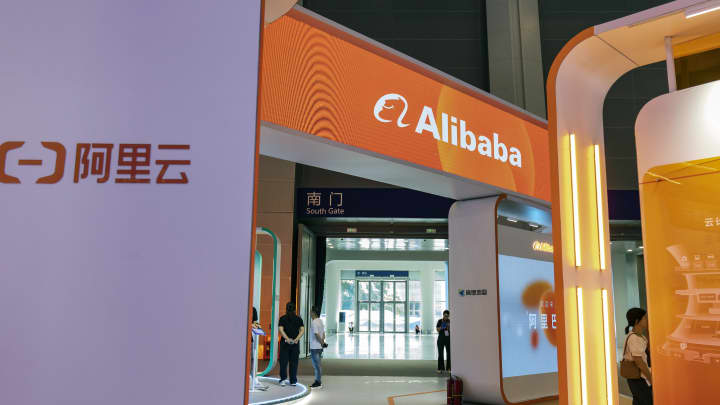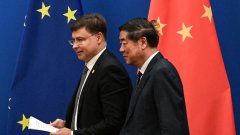
needs to be "user first" and "AI-driven," new CEO Eddie Wu told employees on Tuesday, as he laid out the strategic priorities for the Chinese tech giant.
Wu, who is just three days into the job as Alibaba chief executive, called for the e-commerce firm to "adopt a start-up mindset" as he looks to steer the company back to growth following one of the most tumultuous times in its 24-year history.
"Times are changing, and so must Alibaba! As the world progresses, Alibaba needs to evolve even faster!," Wu said in a letter to employees that was seen by CNBC.
, started as CEO on Sept. 10, taking over from to focus on heading up the cloud computing business. However, in a surprise move, with Wu taking over in the interim.
It comes months after Alibaba , the biggest shakeup in its history.
Wu said Alibaba's two main strategic focuses will be "user first" and "AI-driven." The company will "reinforce" its strategic investments in three areas.
The first it calls "technology-driven internet platforms." Wu said that Alibaba's business should "seek out the most open and collaborative relationships," even with competitors. This is a different approach from Alibaba which has tended to try to keep users within its ecosystem of products.
Wu also touted the need to invest in artificial intelligence. Alibaba's cloud unit has tried to position itself as a leader in AI inside China as it looks to reignite growth in the business.
"Each of our businesses generates massive numbers of use cases; therefore, we must transform these use cases into applications for AI technology, driving breakthrough user experience and business models through technology innovation," Wu said.
"If we don't keep up with the changes of the AI era, we will be displaced."
Alibaba Cloud has its large language model called . An LLM is an AI model trained on huge amounts of data and underpins chatbot applications. It's the same type of model that OpenAI's ChatGPT is based on.
Wu also said Alibaba needs to continue to invest in "globalization."
Alibaba will also look to promote younger talent. Within the next four years, the company will promote those born after 1985 and the 1990s "to form the core of our business management teams," Wu said.




